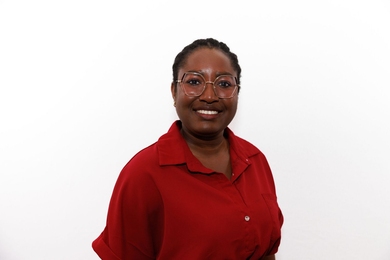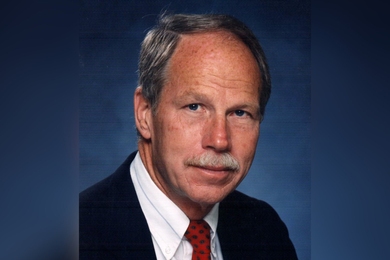Who would think that the topic of batteries would heat up debate? Or that teachers would avidly discuss whether students should use computers like crayons? Or that the process of point and counterpoint would turn strangers into a salon of instant savants?
All this, however, has happened at the MIT Museum as part of its "Soap Box" program, a monthly series of presentations by MIT experts on critical issues designed to break down walls between the speaker and the spoken to.
"We wanted to make Soap Box less of a lecture and more of an introduction to a discussion," said MIT Museum Director John Durant, who launched the series in November, modeling it after European-style salons on science and technology topics held in cafes or pubs.
Soap Box is held in the museum's robotics gallery, and with support from the Boston Globe, the series has attracted a mix of different audiences who do more than listen quietly and politely raise hands at the end.
"We're trying to put the emphasis firmly on conversation," Durant said.
Thus, presenters are asked to speak for a tight, bright 20 minutes on a chosen topic and to leave those PowerPoint slides at home. The audience then is asked to break into small groups and in "discuss-amongst-yourselves" fashion, develop a list of agenda questions. The questions are quickly typed up by museum staff and projected on a screen for general consideration. Even after the evening concludes, discussion continues in an online forum on the museum's web site. A video of the event is also posted on MIT World (mitworld.mit.edu).
Past Soap Box presenters include Rodney Brooks, director of the Computer Science and Artificial Intelligence Laboratory; Professor Nancy Kanwisher of brain and cognitive sciences; Assistant Professor Andrew Endy of biological engineering; David Altshuler, a geneticist at the Broad Institute of MIT and Harvard; and Professor of Materials Science and Engineering Donald Sadoway, who roused his audience with a forceful debunking of hydrogen as an alternative energy source.
"You wouldn't think batteries would be all that interesting," said Jon Bijur, the museum's education coordinator. But Sadoway "got very passionate."
Like any new product, the Soap Box format has had bugs to work out. "There's a bit of a myth that most scientists and engineers just can't speak clearly to general audiences about what they do," Durant said. "I find that when you invite first-rate people, more often than not they turn out to be pretty good at explaining what they're about to a general audience. That's certainly been our experience."
A recent Soap Box speaker even took the discussion unabashedly down to the preschool level. In the May Soap Box, Professor Mitchel Resnick of the Media Lab called for educators to use computers less like televisions and more like a paintbrushes. Educators, he argued, should think more like kindergarten teachers who give kids blocks and finger paints to encourage creativity and exploration.
"I see computers as having the potential to extend the kindergarten approach to learners of all ages -- to allow work on more advanced ideas, but still use that kindergarten approach," he told a capacity crowd that included a large number of teachers and educators.
Resnick also demonstrated his new Cricket kit, a box of tools marketed through Playful Invention Co. and designed to let children create and program their own inventions.
Although wowed by the kits, the audience was dubious about how to work Resnick's ideas into an actual school day. In his discussion group, John F. Howard, a Watertown engineer whose wife is a school principal in Salem, wondered if Resnick's emphasis on creativity was "out of touch with the political direction imposed on education, because that's not what we're testing nationwide."
His group thus put up for discussion questions such as: "How do teachers negotiate this with MCAS (Massachusetts Comprehensive Assessment System) pressure?" and "Why is it wrong to separate creative activities from more rigorous academic studies?"
Shirley Cassara, a child development teacher at Bunker Hill Community College, sadly told Resnick, "You have described kindergarten as it used to be in Massachusetts, not as it is now, because the MCAS has dictated the new frameworks for education which has penetrated to the kindergarten level."
Resnick conceded, "What we're trying to do is take the kindergarten approach and move it up, and what, in fact, is happening is that the other (approach) is moving down."
Durant said he was pleased at the audience's challenging attitude. "We get quite different kinds of conversation and quite different kinds of debate from month to month," he said.
Soap Box will return in September and is planning a "Soap Box Special" in October on energy.
For more information, visit web.mit.edu/museum/programs/index.html.
A version of this article appeared in MIT Tech Talk on June 7, 2006 (download PDF).





